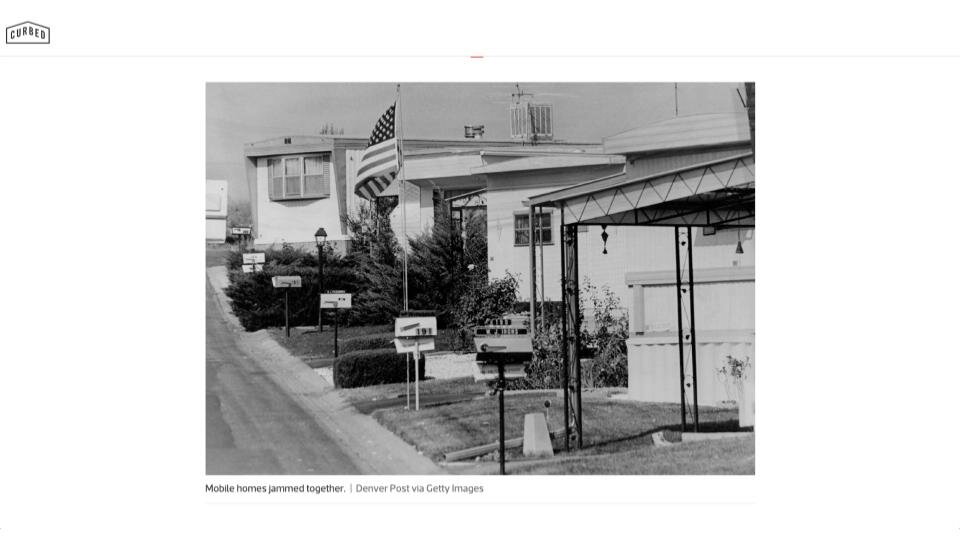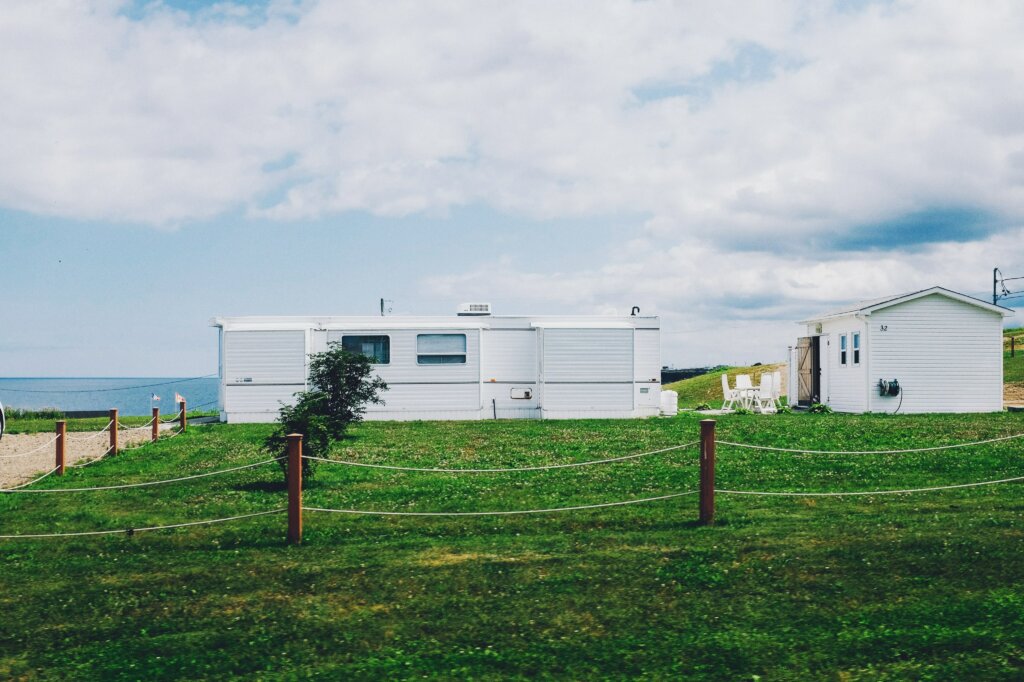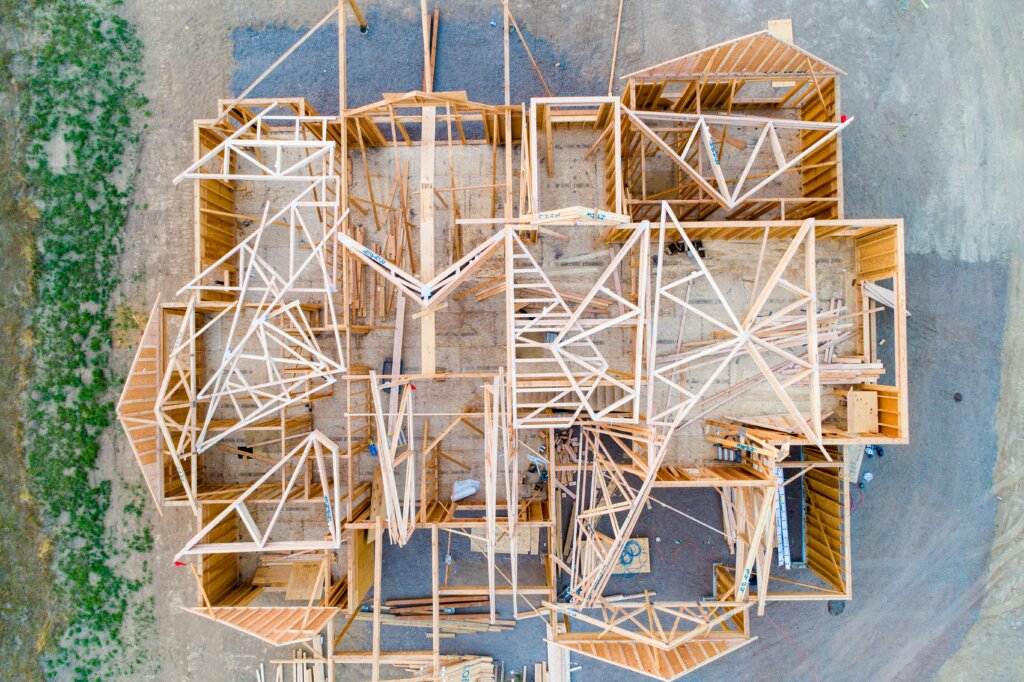In this video, Felicia talks about the differences between mobile vs manufactured vs modular homes. If you’re looking to understand the disadvantages of modular homes or manufactured homes, knowing the difference between the 3 will help you understand the pros and cons of each.
From the video:
Are you looking to buy that perfect piece of land for your next manufactured home? Or modular home? Or mobile home? Hang on, what’s the difference?
My name is Felicia I’m a land investor and a partner at Compass Land USA.
We’ve bought and sold hundreds of properties across the US.
I’m going to go over the differences and DISADVANTAGES of a modular, mobile, and manufactured home, so you understand each one and you know which one you want on your next piece of land.
Not knowing the difference between these can cost you thousands of dollars, and totally derail your land investment, so you want to make sure you understand that to avoid lots of disappointment down the road.
Let’s start with a mobile home. These became popular as an affordable housing option post WW2. You can kind of get a sense of that from the image on Curbed.

Mobile Homes
- Made before 1976
- Often also referred to as a trailer
- No HUD insignia ❌
- Not allowed in a lot of counties ❌
A mobile home is actually a manufactured home built before 1976. In 1976, the government came up with the Mobile Home Construction and Safety Act.
After this act was passed, all mobile homes had to pass the housing and urban development (HUD) code. HUD is a national standard and requires manufactured homes to have things like a permanent steel frame, dictate the minimum size for a manufactured home, ceiling heights, how many doors and windows, stuff like that.
So before 1976, it’s a mobile home and it was not subject to HUD code.
After 1976, it’s now called a manufactured home, and it had to pass the HUD code, and has the little HUD insignia on it for passing.
That’s what a mobile home is, a predecessor to the manufactured home. It’s really easy to confuse these 2, and unfortunately not everyone follows the same definition.
So when you’re buying land for a mobile or manufactured home, you want to give the county Building Department a call and make sure you guys are on the same page.
An important note here is that a lot of counties will not allow mobile homes, which is a huge disadvantage if you already own one, only manufactured homes. So you want to make sure you clarify with them.
Ok, you’re good with mobile homes. Now let’s focus a bit more on manufactured homes.

Manufactured Homes
- Made after 1976
- HUD insignia upon meeting criteria ✅
- Counties like these more than mobiles!
- Delivered in a few large, pre-assembled pieces
Manufactured homes are built in a factory, and are a fraction of the cost of a traditional, stick built home.
You can customize these with all kinds of stuff, like hardwood floors, granite countertops, you can get pretty fancy with them. I’ve heard of people getting 2 story homes, high-pitched roofs, big porches.
For example this page shows a couple of Florida manufactured home listings, and you can see they can get pretty glamorous.
If you’ve ever custom-built a manufactured home, leave a comment below and let me know how that went. I’ve never done it myself so I’m curious to know. 🙂
Remember, they will be subject to HUD codes, and will have the HUD insignia sticker on them when they’ve been certified.
The HUD changes every couple of years, it’s not set in stone, so that’s something to be aware of if you’re thinking long-term for the resale value. So if the HUD changes and your manufactured home is out of spec, it could decrease the value of it.
When you go to purchase your manufactured home, it will come in a just a few very large sections.
The number of sections will depend on whether you want a single wide or a double wide.
So it’ll get delivered to you on a couple of low boys and they’ll finish assembling it for you on your property.
Whether or not the manufactured home is adhered to a permanent foundation depends on the county requirements. Sometimes these homes are just put on a concrete or limestone pad. Depending on the area, they might add hurricane straps to keep it in place.
If you’re purchasing a manufactured home to bring onto your land, I think it’s just hard money lending, I don’t think there’s a special type of loan for that situation. Check with the company you’re getting the manufactured home from, and then cross-check what they tell you with your bank.

Modular Homes
- NOT subject to HUD → subject to state level codes
- Delivered in many pieces (frame, windows, doors, etc) and assembled on site
A modular home is also built in a factory, and has lots of options for upgrades and customizations.
The main difference between manufactured and modular homes is that modular homes get built in a bunch of little pieces, it’s more similar to a stick built house.
So all the pieces show up, like frames, windows, doors, and then they assemble it all together on your property.
This is different from manufactured homes which are delivered in one or two big sections, pretty much already built and completed, and simply placed on your property.
Modular homes are governed by local state building codes, unlike manufactured homes which are governed by HUD at the national level.
State and HUD requirements are not the same.
If you need financing for a modular home, I’m pretty sure it would fall under a new construction loan. Check with your bank or the modular home company you’re purchasing from and see what they advise.
Both of these options are less expensive than a site-built home.
If you’re buying land for the purpose of getting a manufactured or mobile home on it, there are a few costs you need to be aware of:
- delivery
- platform or pad construction (if required)
- septic system permit and install
- building permits – which you still need to get, even though you’re not doing a site-built home
- bringing electricity to the property, or connecting it to an existing power line (or solar, if allowed)
- permit and install for drilling a well
And I’m sure I’m missing a few. But this is a starting list anyway.
Ok so there we have it! You know the difference between mobile, manufactured, and modular homes. And have a rough idea of what it means to bring one of these options onto your land.
I hope you found this video helpful! If you made it this far, thank you so much for watching.
Please don’t forget to leave a comment, let me know if this was useful for you. And make sure you subscribe to our channel. We do lots of informative land buying related videos like this as well as pretty cool custom property tour videos.
Thank you so much for watching, and I’ll talk to you soon. 🙂
Are You Looking for More Info?

How You Can Become a Land Buying Expert – Download our FREE Guide here. Or, you can feel free to contact us anytime if you have questions, want to easily and safely buy land, or want to just learn more about how we can help people like you search for land as an investment.
Get the FREE Guide and then give us a call at (313) 349-0434 and we’ll discuss how you can easily buy land with little money using our automatic approval owner financing.
Download Your FREE “Land Buying Expert” Guide Below
Just put in your name and email, click “Download” and we’ll send you the free guide right away.



OMG! I really love it when you mentioned that manufactured homes are indeed a more cost-effective choice. My aunt has been thinking of getting herself a new house to celebrate her retirement next month. I’ll forward this article to her so she’ll make the right purchase later.
Hi Amy. Awesome!! I’m glad this will be of use to her. Please wish her a happy retirement for us 🙂
It made sense to me when you said that you have to consider bringing electricity to the property and all other costs when you decide to have a manufactured or mobile home. This is something that my husband and I will consider because we are interested in moving to a mobile home to live with fewer maintenance needs and expenses. We will take note of your tips so we can have everything planned out at least before October.
Hi Shammy – great! I’m glad you found this helpful. Hopefully you have everything planned and it’s a success come your move. Best of luck!
Thank you for the heads up when you told us to call authorities first before buying a mobile home to ensure you’re following standard protocols and regulations before we set up anything. I want to start living on my own soon, but since I don’t want to spend a fortune on my new place, I’m considering opting for a mobile home. I’ll be sure to remember this while I look for mobile home communities I might consider.
You’re welcome Elina! I’m glad it helped you out. I hope you find a community that suits you, good luck!:)
A prefab ADU (Accessory Dwelling Unit) is a small, standalone residential structure that is built offsite and then transported and assembled on a property. Prefab ADUs offer several benefits, including being faster and more cost-effective to build than traditional ADUs, which are built onsite using traditional construction methods. They can also be more energy-efficient and sustainable, as they are often constructed using prefabricated materials that are designed to be energy-efficient. Prefab ADUs can be used for a variety of purposes, including as a rental unit, a home office, or a place for aging family members to live. In some areas, there are specific rules and regulations that govern the construction and use of prefab ADUs, so it is important to familiarize yourself with these regulations before embarking on a prefab ADU project.
Thanks for the input Adu Homes! Looks like you guys have some great products over there 🙂
Thank you for informing us that mobile homes are manufactured homes that are also often referred to as a trailer. I imagine if a flood hit your neighborhood because of the heavy rainfall, it would be best to have mobile disaster relief shelters ready for those who can’t stay in their houses during such a calamity. I’ll keep this in mind in case I ever need them in the future.
What stuck out to me the most is when you said that compared to traditional and stick-built houses, manufactured houses cost half. This is a perfect tip for my youngest cousin who is interested in buying a house before getting married in December. He has to consider that he has wedding expenses to think about, so his budget is restricted.
Hi Ava. Awesome! This could be a great way for him to get into the real estate market. Hopefully he finds a solution that works for him and his partner. If he’s looking for a plot of land for his new home, send him my way! 🙂
Thank you for sharing the informative Article.
I’m glad you found it helpful! 🙂
Thanks for sharing the informative article.
You’re welcome! Glad you found it helpful.